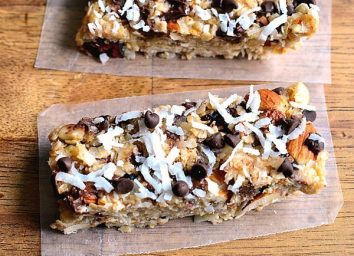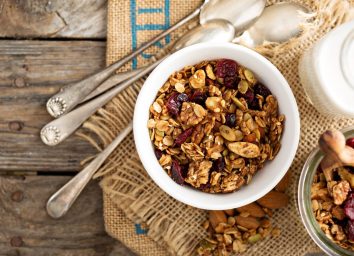What Happens To Your Body When You Eat Granola
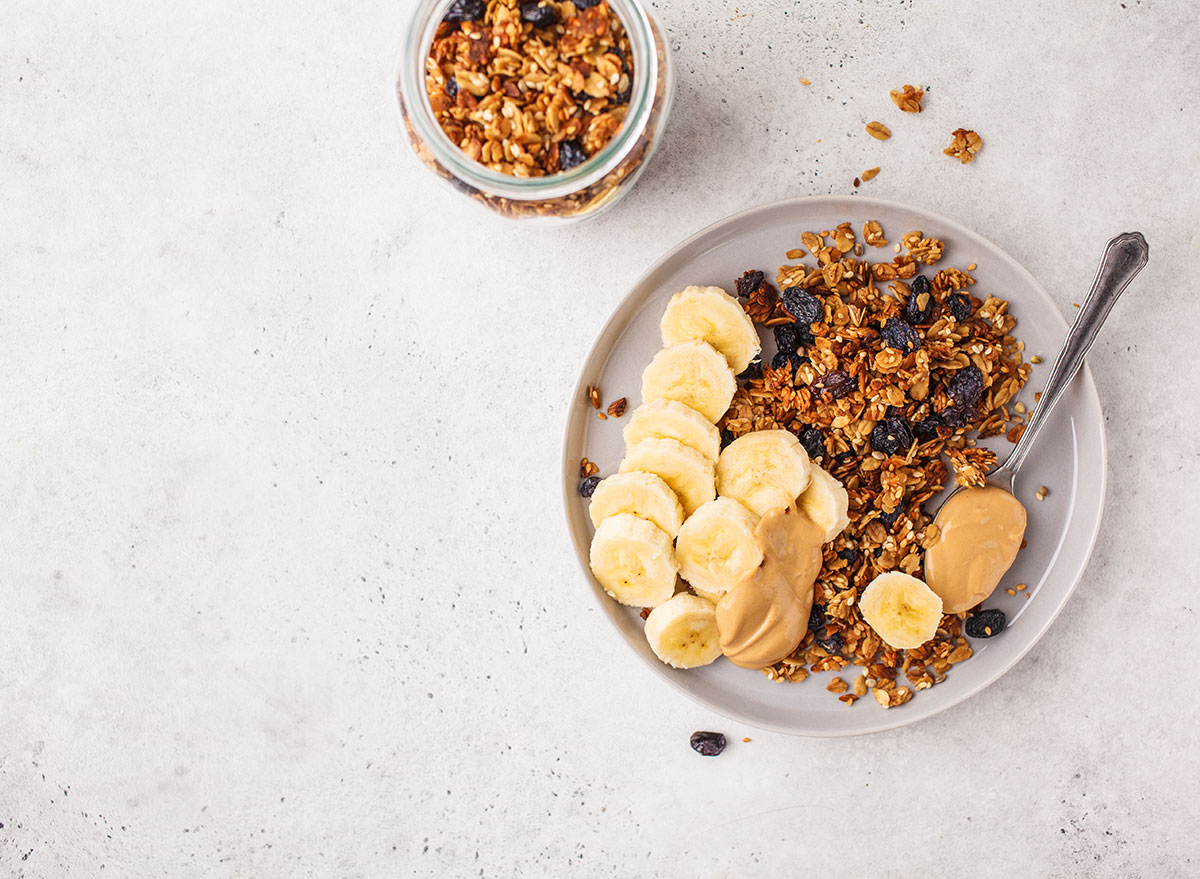
Whether eaten like cereal or used as a yogurt topping, granola can provide you with some impressive health benefits—that is, of course, as long as you're buying the right kind.
Granola is commonly found on lists of "healthy" foods that aren't really healthy, and it's easy to see why. This whole-grain snack is traditionally made by covering oats and other ingredients in a blend of sugar, oil, and spices and then baked until crispy. It makes for a perfectly crunchy yogurt topping or more flavorful cereal, but it does come at a cost. Some store-bought granolas can contain as much as 13 grams of sugar per serving—the same as what's in two packs of Smarties Candy Rolls.
But despite there being an odd sugar bomb on grocery store shelves, many food manufacturers have started to smarten up and have significantly cut the amount of sugar in their offerings. Now, it's not hard to find healthy granola (in fact, just look to The World's 10 Healthiest Granolas). So if you do grab a bag of low-sugar, crunchy oats, you'll end up reaping some impressive health benefits. Read on to learn more about how eating granola will affect your health, and for more on healthy eating, don't miss 7 Healthiest Foods to Eat Right Now.
You'll get a serving of whole grains.
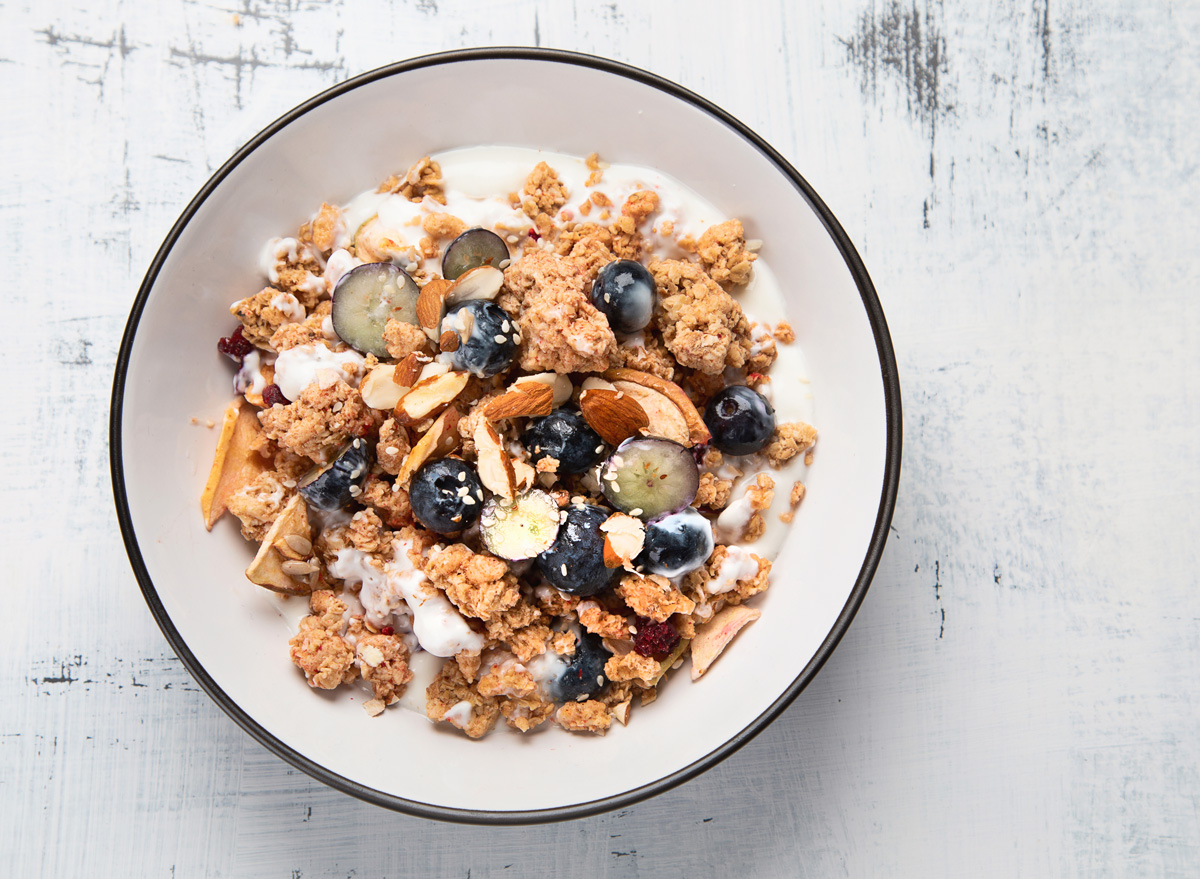
If you opt for a serving of granola over highly refined cereal, you'll reap some incredible benefits of whole grains. (Especially if you typically eat any of The Unhealthiest Cereals on the Planet and switch to granola.) Whole-grain foods are healthier than others due to their higher levels of fiber and antioxidants, and studies have linked whole-grain intake to a reduced risk of cancer, cardiovascular disease, diabetes, and obesity as well as better digestive and microbiome health. Eating granola for breakfast will account for one out of the three recommended servings of whole grains per day.
You'll feel fuller.
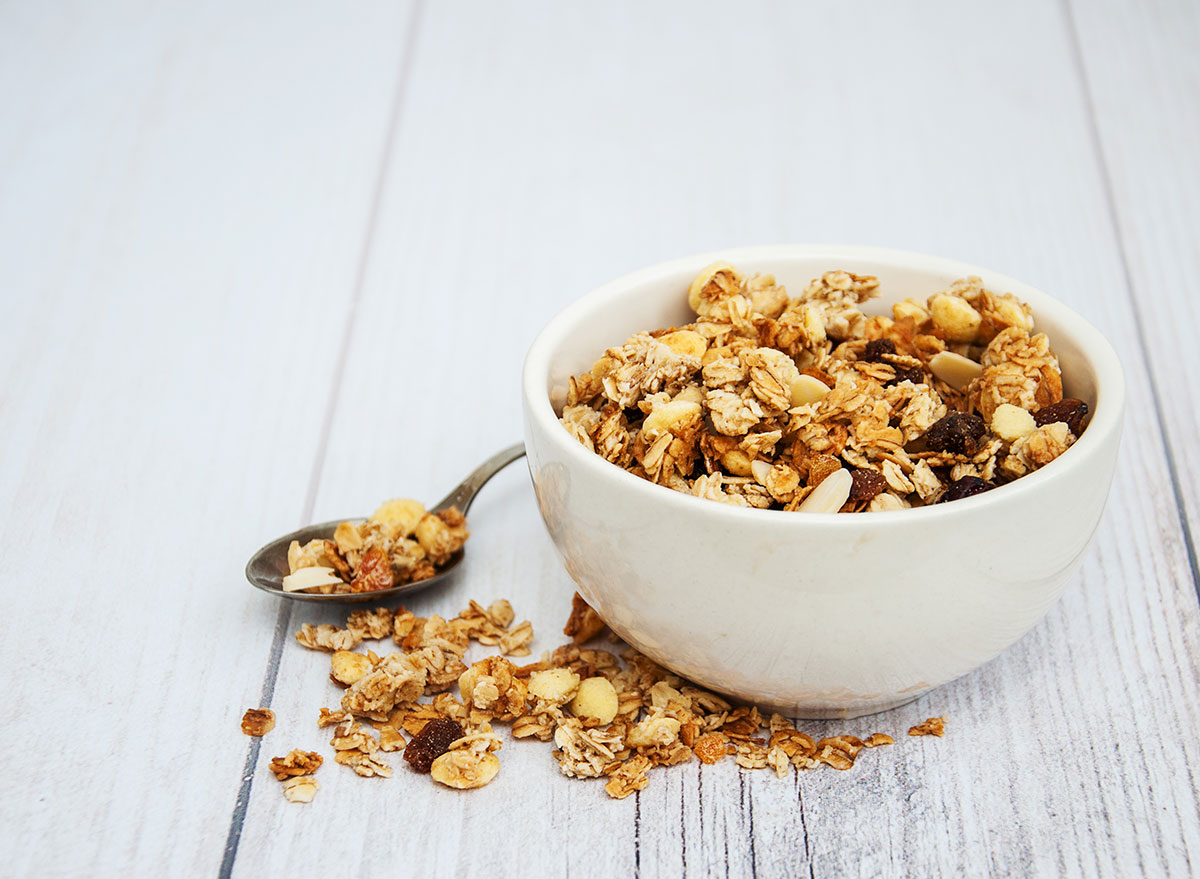
If you're a fan of granola that comes with seeds and nuts, adding this breakfast food to your yogurt can help prolong feelings of fullness. Seeds and nuts are high in fiber, protein, and healthy fats—three nutrients that can quiet hunger and help you feel satisfied. It's not just the supporting characters in granola that help this food keep you full. A review published in Nutrition Reviews found that oats are also linked to increased feelings of satiety due to their levels of a specific type of fiber, β-glucan.
You may live longer.
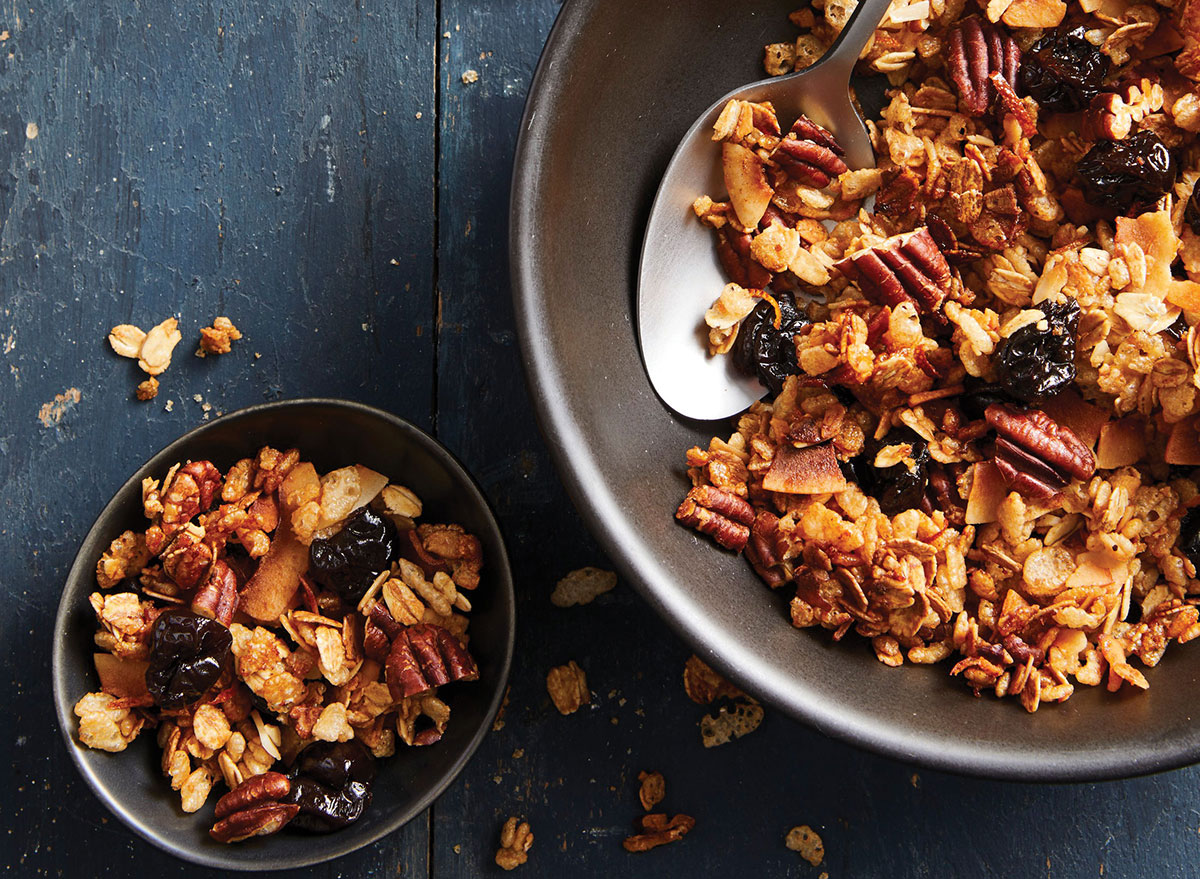
As a whole grain food, oats have been linked to a longer life. A Circulation study conducted by the American Heart Association found that having a regular intake of whole grains in one's diet can help inverse mortality rates.
You'll add to your daily recommended limit of added sugars.

Even low-sugar granolas contain added sugar—as little as 4 grams, but as mentioned earlier, as high as 13 grams of sugar. When combined with a fruit-on-the-bottom yogurt, eating a granola and yogurt parfait for breakfast can lead to consuming over 20 grams of added sugar, or around 40% of the recommended limit. Over 50% of Americans exceed the Dietary Guidelines for Americans recommendation to limit added sugar intake to 50 grams per day, which the CDC states can contribute to health problems such as weight gain and obesity, type 2 diabetes, and heart disease, so it's recommended that you keep track of your daily intake of sugar if you consume granola regularly. Or, make it easier for yourself by pairing your granola with The 15 Best Low-Sugar Yogurts, Approved by Dietitians.
You may gain weight.
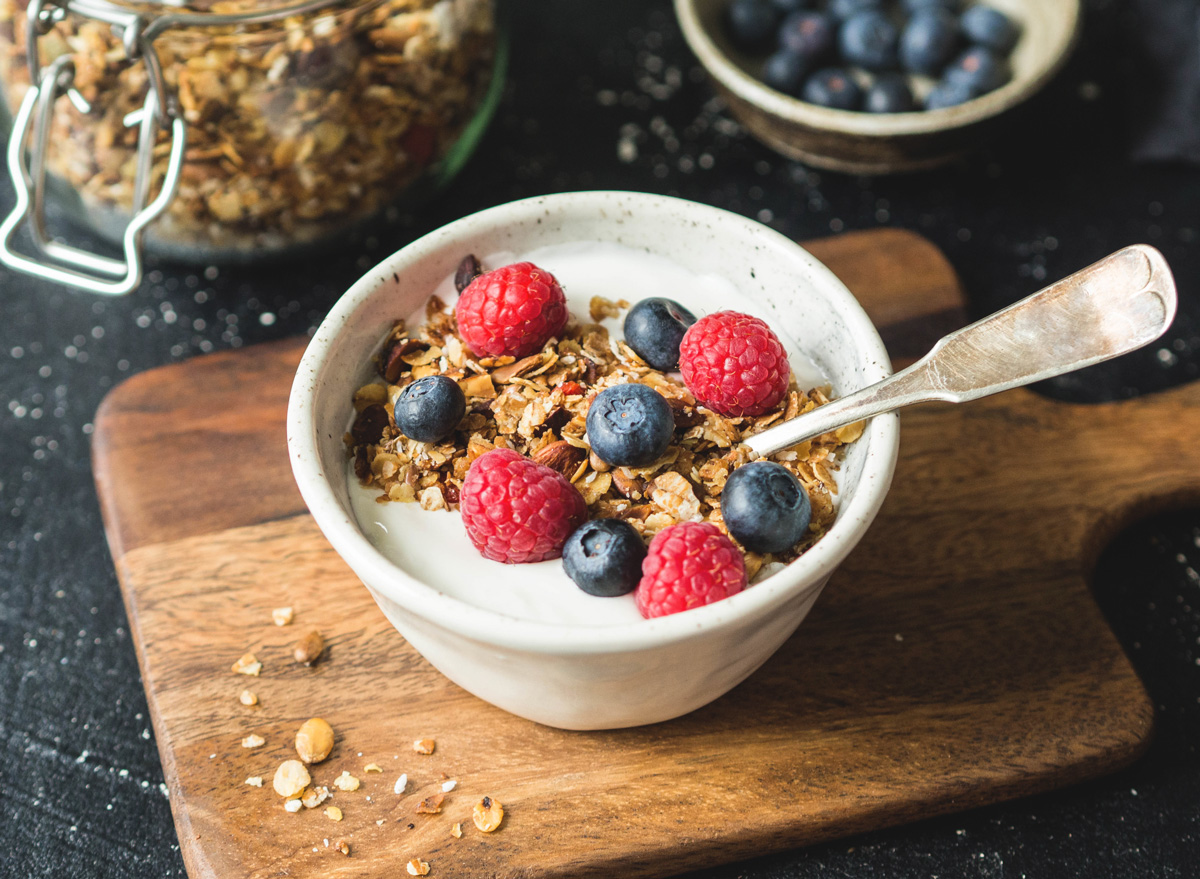
Seeing as some bags of granola are high in sugar and that sugar provides calories and no other nutrients, consuming too much granola may lead to weight gain. Because granola does have some health benefits, you can reduce your risk of weight gain by alternating your morning meal with any of these 19 High Protein Breakfasts That Keep You Full.
